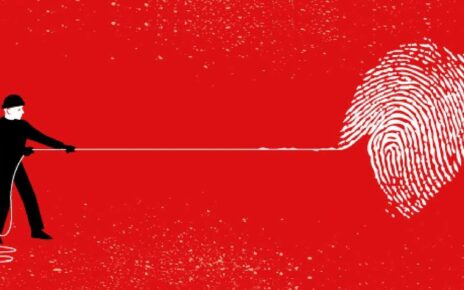Dr. Hüseyin Büyüközer
We have found it useful to mention below the views of some of the Companions, Sufis and scholars on the halal and haram nature of food and its place in human life.
They say: One day someone brought milk to Abu Bakr (r.a). He took it from his hand and drank it. Adam said to Abu Bakr (r.a): “Before this, you used to inquire about what I brought you and then you would take it. You took it without asking anything about it.” Abu Bakr (r.a) said:
-Tell me the story of this milk.
When Adam said: “I recited an incantation to a member of the community and in return they gave me this milk,” Abu Bakr (r.a) immediately vomited the milk he drank and said: “O Lord, this is all I can afford, and You are sufficient for the blood in my veins.”
Ibn Abbas (ra) said: “The prayer of the one who has forbidden food in his stomach will not be accepted.
Eating too much of halal food is a disaster for the devotees and a torture for the mutahids. They have difficulty in digesting it. Eating more than necessary harms a person in ten ways.”
Abdullah (r.a), the son of Umar, said:
“A person’s virtue is to obtain his food from halal and to treat and bestow it on his friends.”
Imam-i Azam (k.s) says:
“Worship, no matter how much it is, is useless unless one knows whether the food that enters the stomach is halal or haram.”
Shaykh Abdulhälik-i Gücdevani (k.s):
“Eat halal, avoid questionable food unless you have to.”
Mawlana Khalid-i Baghdadi (k.s):
“Be extremely careful and cautious about food, clothing and drink coming from Bilad-i Kufr and do not patronize or use them.”
See what the great scholar Ghazali Hazretleri says on this subject:
Haram and doubtful food is unclean according to the Shariah. Worship with that which is unclean is also not valid and acceptable. As a matter of fact, Allah Almighty forbids those who are jooab from entering the mosque, and those who are without ablution from praying and holding the Quran.
However, jinnah is the result of sexual intercourse with a halal person. Ablution is a result of urination. For this reason, the first forbids entering the mosque and the second forbids approaching the prayer and holding the Quran, even though both are permissible. How can a person whose body is completely contaminated by eating haram and doubtful things be worthy of the service of Allah Almighty, and how can he come to His presence and perform worship and worship? Yahya bin Muazz Al Razi says that worship is a jewel buried in the treasury of Allah Almighty, locked with a precious lock. The key to this treasure is prayer. Its teeth are halal food. Just as a key without teeth cannot open the door, the key of
halal food is needed to reach the jewel inside the treasure (the reward of worship) and to open the treasure.
Haram is something unclean and filthy that deprives a person of good. There is no reward for worship with it. Such worship does nothing but tire the person. The Prophet (SAW) said:
“There are many who spend their nights in prayer, but they gain nothing but sleeplessness. There are many who fast, but they gain nothing but hunger and thirst.”
Ma’ruf Kerhi said: “When you are fasting, look carefully at whose food and in whose company you break your fast. There are many people for whom a morsel of food corrupts their hearts and prevents them from worshipping. There are many people whose food prevents them from praying at night. There are many evil looks that prevent their owner from reciting the Qur’an.”
Abdulkadir Geylâni (k.s) speaks:
“There are four things on which the health of the heart depends. The first is to pay attention to what you eat and drink. It is not to feed on haram and illegitimate earnings and not to allow haram food in the stomach.”
The issue of halal food is very important. The believer pauses at the things he eats and drinks. He looks carefully whether they are halal or not, whether they are halal and earned by the sweat of his brow, and whether they are in accordance with the Book and the Sunnah. He knows that the way to closeness to Allah (swt) is first and foremost through halal food.
It is good to be content with a little of the halal sustenance. If you take too much of the halal sustenance, it will lead you to take the permissible things that all Believers share in taking. If you take too much of the permissible, it will lead you to take the doubtful. So one day you will see no harm in taking the doubtful things. And the suspicion will lead you to haram. And haram leads to hell.
A zahid is one who has zuhd in halal things. As for the haram things, it is obligatory to have zuhd in them, that is, to strictly abstain from haram things.
Someone says:
“Ban your nafs from habits. Do not spontaneously eat a morsel unless you follow the book of Allah (swt). Let what you eat and drink be halal. Let it be what Allah (swt) has made lawful. Do not take anything even as medicine that is not in accordance with the Shariah of Allah (swt).”
The sultan of that time imprisoned Zünûn al-Misri for some reason. The food given to those in prison was not eaten by the sultan. But he had a brother in the hereafter. He also sent food to the blessed one, but he did not eat it either.
When he came out of prison, his brother-in-law asked him why he did not eat the food he had sent. He said, “I didn’t eat it because it came with the vessels of oppression in prison.”
Mehmed Zahid Kotku Hocaefendi (rh) also left the following words of advice on this subject.
The food to be eaten must be halal. This should be learned thoroughly from the books of the catechism. Just as prayer is obligatory and faith is obligatory, it is also obligatory to eat halal food. Shopping methods are explained very well in our figh books. It is the obligation of every Muslim to learn these.
Today, people try to learn various foreign languages, but they do not attach any importance to religious knowledge. There is no one who does not know that bribes and interest are haram. Then we leave it up to your opinion how far it is right to sell liquor, to gamble or to make money by gambling, and especially how far it is right to make money by bribery and deceit.
The food or drink must be known, and it must not be mixed with any foreign forbidden substance, and it must be permissible according to the ulema.
In an article published in “Gül Cocuk” (The Rose Child), the Reverend Mr. Esad Cosan, whom we lost in a traffic accident, warns us how? The other day we were offered some chocolates during a visit, we bought them, but what did we find out: they were filled with liquor, that is, alcohol! How sad we were. Are those who produced this not ashamed at all? We bought chocolate from them because we thought it was halal food, but it turned out that they had put haram in it. Is it fair to infect them with haram in such a way that they don’t even realize it? We are very sorry.
Perhaps some non-Muslims, enemies of religion, are doing this deliberately to deceive the public and snicker from the sidelines, “oh, we made you eat haram secretly!”
So, dear children! From now on, take your time, choose your food carefully, don’t be gluttonous, be careful, protect your health meticulously, don’t drink shady soft drinks, don’t play into the hands of the enemies of religion and the people, always choose clean, fresh, natural and unadulterated food!
May Allah’s peace, blessings, mercy, love and pleasure be upon you always.
(May Allah (swt) be pleased with them)





